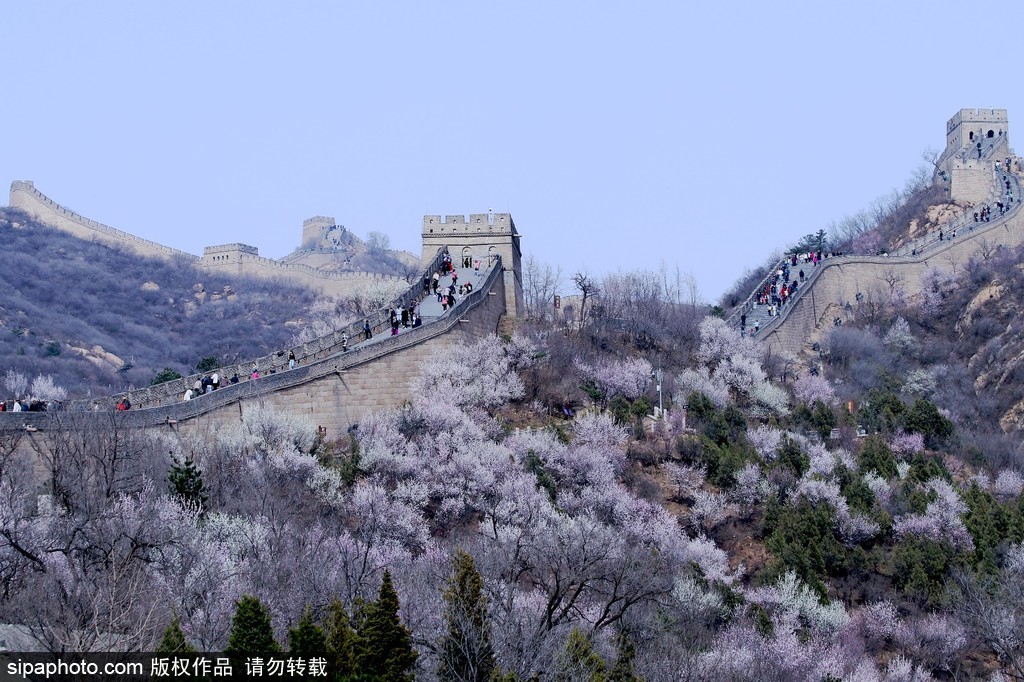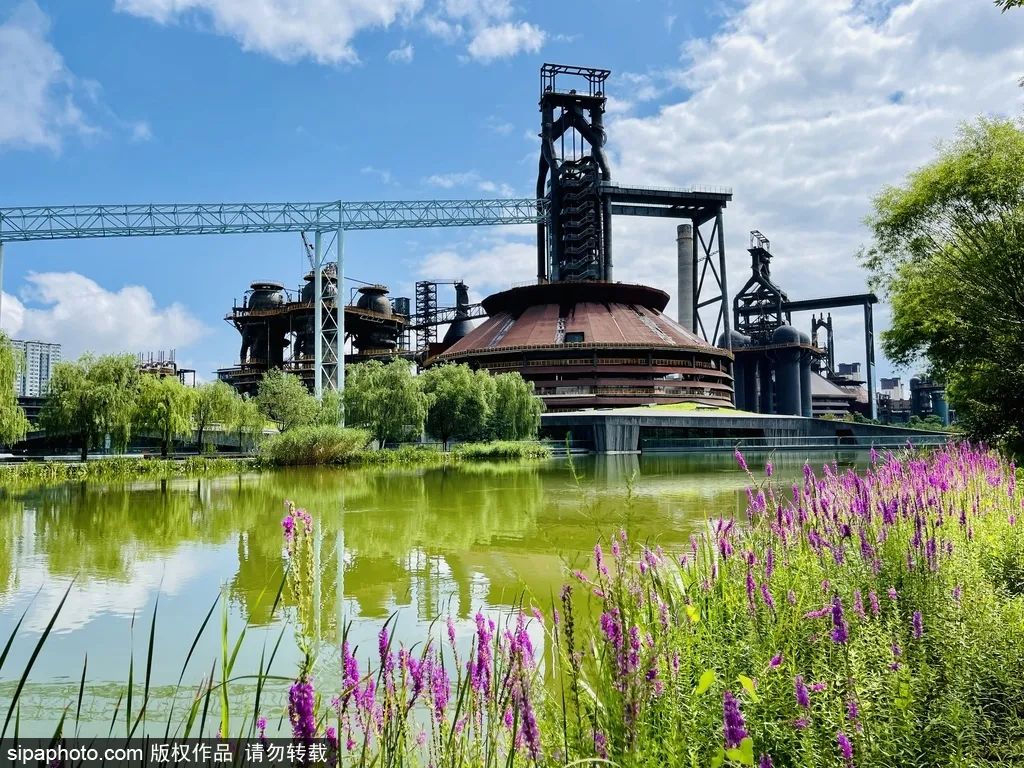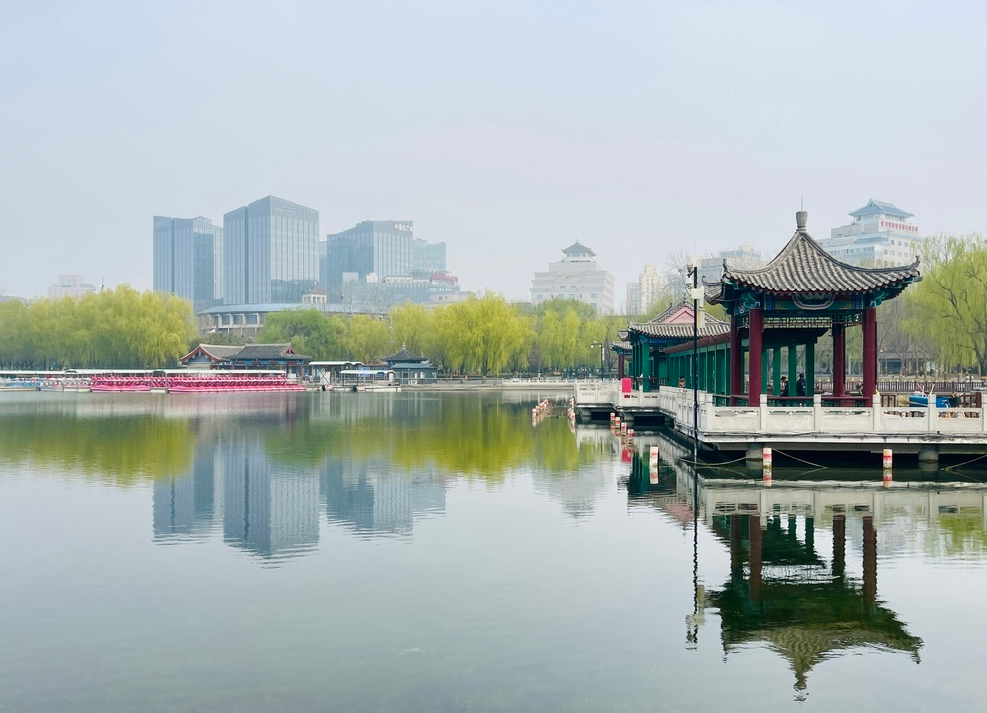The curtain was raised and lights dimmed. Dressed in a glamorous costume, the lead actress of Peking Opera masterpiece The Drunken Beauty and a male opera singer in a suit took centerstage at the newly renovated Guanghe Theater in Beijing’s Qianmen historical area, on the evening of Nov 1.
When the unlikely duo belted out lyrics of the Italian opera Time to Say Goodbye, one in Chinese and the other in Italian, the audience in the packed theater was entranced.
The performance When East Meets West signaled the reopening of the old theater where Peking Opera master Mei Lanfang(1894-1961) launched his illustrious career at age 10 some 100 years ago.
It also lifted the curtain of the 6th Qianmen Historical and Cultural Festival, an event to celebrate the revival of the 600-year-old commercial and cultural hub in the Chinese capital city.
Running through Nov 18, the festival promises a medley of activities, showcasing afine fusion of tradition and modernity.
Visitors to the festival can learn about the hub’s long-standing history and experience its contemporary art through a number of exhibitions. A raft of pop-up stores showcasing handicrafts and cultural creative products born out of cultural heritages from around the country should also not be missed.
For example, a pop-up store named after Li Ziqi, spiced up the thoroughfare steeped in history and culture and attracted much attention. Li, a big-name influencer with a following of more than 60 million on social media, is long famed for promoting traditional Chinese cultures.
Visitors to the store can appreciate a slew of handicrafts once featured in Li’s viral videos, such as the cloth dyed by natural pigments, oil-paper umbrellas, and the four treasures of the scholar’s study. They can also purchase the spicy sauce from Li’s hometown, Southwest China’s Sichuan province, as gifts for family and friends.
Meanwhile, visitors can check out “WanzhuanQianmen” (Explore Qianmen), a mini program on WeChat, China’s most popular messaging app, to discover a full-package guideon tours, entertainment and restaurant choices.
Close to the Forbidden City and the Tian’anmen Square,QianmenDajie (thoroughfare) is arguably the most famed historical block along Beijing’s axis since the Yuan Dynasty (1206-1368).
The north-south thoroughfare thrived and prospered during the early days of the Qing Dynasty (1644-1911) as a commercial and cultural hub for its widely sought-after shops and restaurants, lantern fairs, Peking Opera theaters, and teahouses.
QianmenDajie became the second largest pedestrian thoroughfare in the Chinese capital after Wangfujing, soon after it was fully refurbished in 2008. The inclusive historical block has since evolved into a melting pot of ancient Beijing culture and modern entertainment and commerce, making it an essential place to visit for anyone who wants to experience authentic Beijing culture as well as seek fun in this international metropolis.
Inaugurated in 2010, the Qianmen Historical and Cultural Festival is co-organized by the CPC committee of Beijing Dongcheng district and the Beijing Dongcheng district people’s government.



